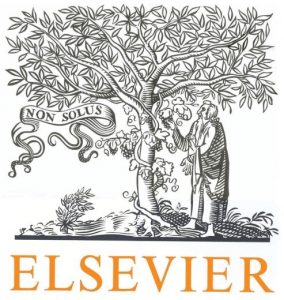This posting is sponsored by the Library Publishing SIG and published in cooperation with the ARL Section. Members of the Library Publishing SIG reach out to library publishers and invite them to respond to a series of questions.
This post features Jesper Boserup Thestrup, who is an Information Specialist at the Royal Danish Library (https://www.kb.dk/en) (RDL) in Aarhus (https://www.kb.dk/en/visit-us/victor-albecks-vej-aarhus). He works with the publishing platforms Tidsskrift.dk (https://tidsskrift.dk/) and Ebooks.au.dk (https://ebooks.au.dk/aul). More information about his professional work could be found on his LinkedIn profile (https://www.linkedin.com/in/jesperboserupthestrup/)
1: Describe your work in library publishing and which infrastructure are you working with?
JBT: I am part of our team working with two Library Publishing servers operated by RDL. Tidsskrift.dk operates on an Open Journal Systems platform (OJS) and is a national open access platform for Danish Scientific Journals. Ebooks.au.dk operates on an Open Monograph Press (OMP) platform. Ebooks.au.dk publish literature for Aarhus University.
The team operates the servers, test, and update the software. We introduce the editorial boards to the software, help the editors to set up the journals, and gives the editors courses about the software. We help to index the journals. We answer question about copyright, CC Licenses, different file formats, data management, and much more. The service is more complex than we expected when the servers started.
Both the RDL and the State and University Library started an OJS-server in 2007. In 2017, the two libraries merged into the RDL and the two servers merged. Today we present 193 journals and yearbooks online via tidsskrift.dk. Most of them are active, some are digitized versions of old journals and some are older versions of active journals. All journals are Open Access but some have embargoes. Today new journals must be Danish Scientific Journals. We make 100.000 articles available.
The OMP server, ebooks.au.dk, only publish books from Aarhus University. Par example technical reports and accepted Ph.D-theses. The service started in 2015 and today we make 329 e-books available.
In relation to the two servers, the RDL functions as a platform provider. We are not a publisher. If the RDL became a publisher, the library would have to offer more service.
2: What values and principles inform your work?
JBT: In order to manage and develop the servers and help the editors my work has to be based on openness. The servers are intended to give access to information and scientific knowledge and help Danish scientific journals to survive online. That can only be done if we share information about our work and are willing to lean from other similar service providers.
3: What partners do you collaborate with?
JBT: We need to cooperate with many different partners in order to maintain and develop our service.
We are a part of the community, which Public Knowledge Project (PKP) has created. Actually, we were in June the local organizers of the latest PKP development Sprint in Copenhagen. A PKP Sprint is a great way to meet the community and I suggest that You participate in one of the Sprints. The next sprint in Europe is in Hannover https://events.tib.eu/pkpsprinthannover2023/.
We cooperate closely with other Danish OJS-servers and are in contact with the Swedish OJS-network and servers in Finland, Norway, France, The Czech Republic, The Netherlands, and hopefully soon in Poland. We always learn new things about Scholarly Publications when we meet with the other servers.
We try to ensure dialogue between us and our editors in order develop our service. This is often difficult. Very often editors see that something needs to be changed, or improved, when a problem is discovered.
We need to cooperate with other institutions in order to ensure a positive development in this sector. We are involved in different projects with LIBER and Knowledge Exchange. Last year we were part of a national a project involving DOAJ, where we got more Danish OA journals index in DOAJ (https://pro.kb.dk/en/danish-open-access-journals-and-directory-open-access-journals).
4: What training resources have you found helpful in your work?
JBT: I, and some of my colleagues, have followed different courses about copyright in order to give advice to the editors. It is sometimes problematic to publish texts and follow Danish copyright regulation. I took a course about the Creative Common (https://certificates.creativecommons.org/). The course had a focus on librarians and it has been quite helpful.
5: What do you think is the impact of library publishing in the broader scholarly communications landscape?
JBT: Funding is becoming a challenge because many journals do not charge APC’s and subscription is not used due to Open Access Policies. At the same time, universities are cutting funding. The library sector can provide infrastructures, which the individual editors cannot fund and thereby partly ensure that journals can give access to scientific knowledge. I see our servers as an example on how university and national libraries can ensure that Scientific Journals can publish in minor languages like Danish, and help new journals to start.
6: What are your hopes and aspirations for the global library publishing community?
JBT: I hope that library publishing infrastructures can help Scholar Publications to become more available globally, help publications in minor languages to survive and overcome the north-south divide. I think that the necessary software and knowhow is available today.
Funding is an issue. It is not free to operate a journal. Somebody need to pay for the infrastructures and pay for typesetters, graphic designers, and proofreaders. It does not appear to be necessary for editors to take care for all the topics related to Scholarly Publication. The editors must focus on the scientific content of their journals.
